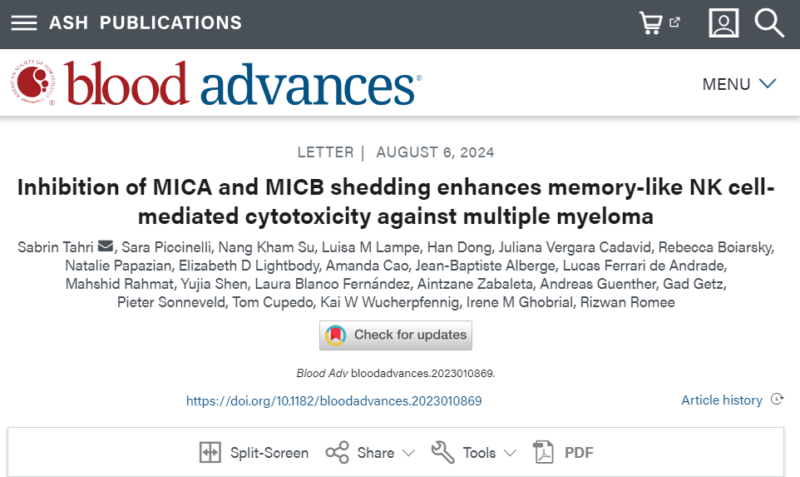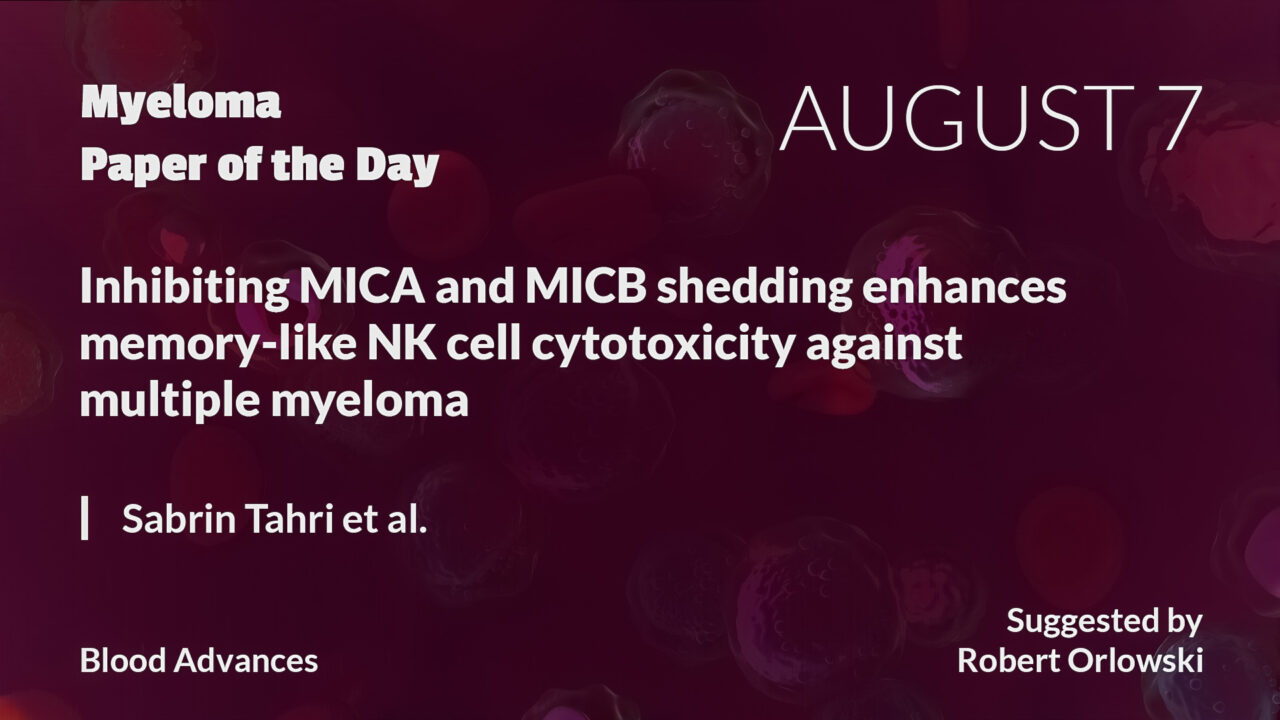Robert Orlowski shared on X:
“Myeloma Paper of the Day: A combination of targeting MICA/B on myeloma cells and introducing memory-like NK cells could result in improved NK cell-mediated immune surveillance in pre-clinical myeloma models.”
Source: Robert Orlowski/X
Authors: Sabrin Tahri, Sara Piccinelli, Nang Kham Su, Luisa M Lampe, Han Dong, Juliana Vergara Cadavid, Rebecca Boiarsky, Natalie Papazian, Elizabeth D Lightbody, Amanda Cao, Jean-Baptiste Alberge, Lucas Ferrari de Andrade, Mahshid Rahmat, Yujia Shen, Laura Blanco Fernández, Aintzane Zabaleta, Andreas Guenther, Gad Getz, Pieter Sonneveld, Tom Cupedo, Kai W Wucherpfennig, Irene M Ghobrial and Rizwan Romee.

Other posts featuring Robert Orlowski on OncoDaily.
Robert Orlowski, M.D., Ph.D., holds multiple positions at The University of Texas MD Anderson Cancer Center, including Chairman, Ad Interim Director of Myeloma, and Professor of Medicine in the Departments of Lymphoma/Myeloma and Experimental Therapeutics within the Division of Cancer Medicine. Additionally, he chairs the SWOG Barlogie/Salmon Myeloma Committee, which is part of the National Clinical Trials Network, dedicated to advancing new therapies and understanding the biology of myeloma.
Dr. Orlowski’s expertise lies in both clinical practice and scientific research, with a particular focus on translating laboratory discoveries into effective treatments for patients. He investigates drug resistance mechanisms in myeloma and seeks to identify predictive biomarkers for treatment response. Notably, his past contributions include leadership roles in developing proteasome inhibitors like bortezomib and carfilzomib, as well as monoclonal antibodies such as daratumumab and elotuzumab.


